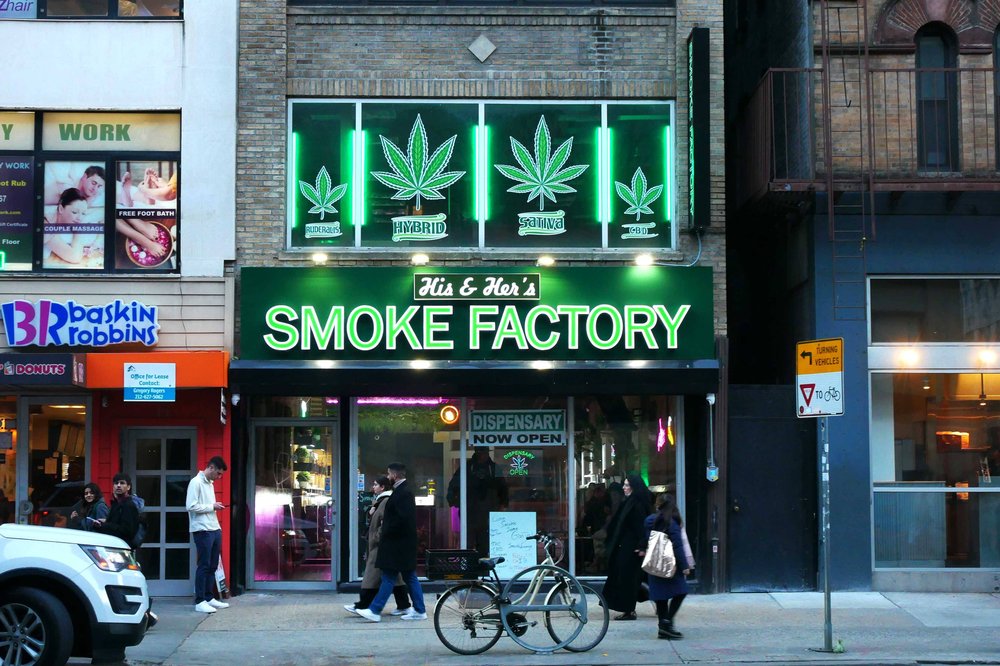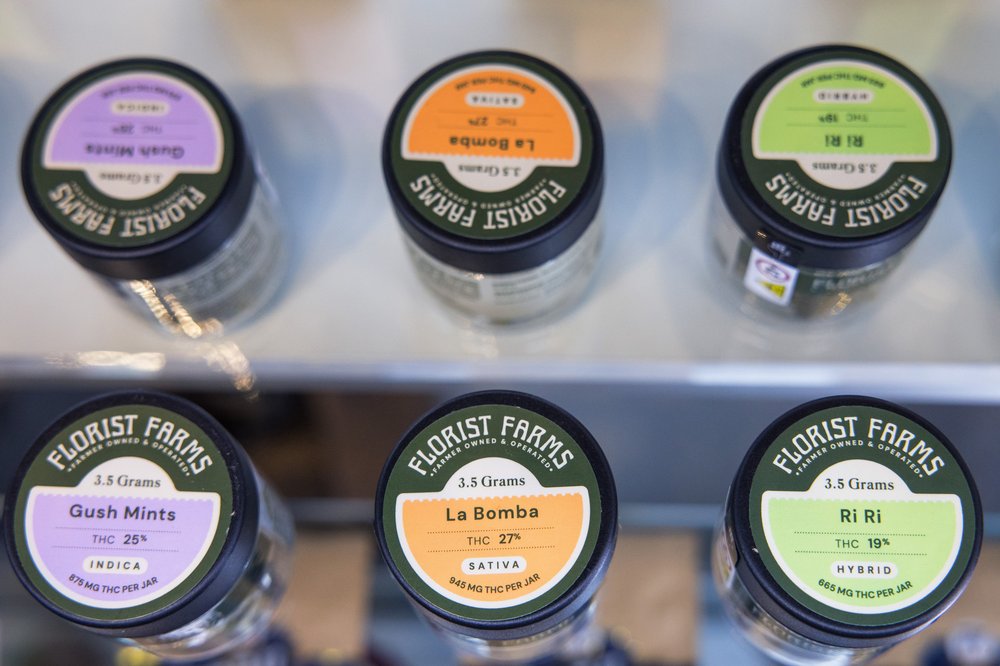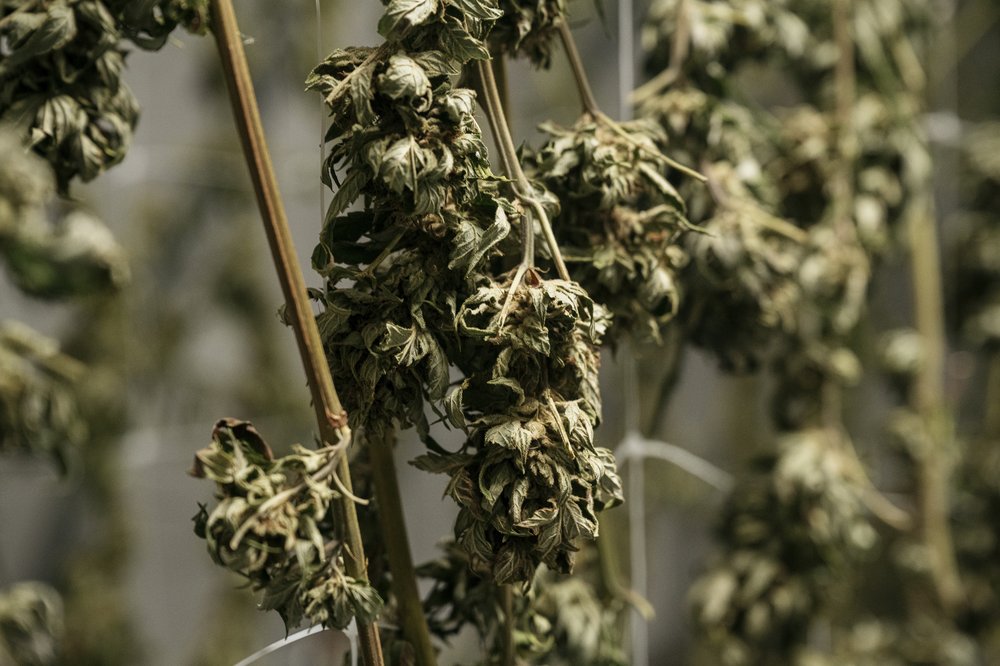Missing funding, real estate competition are slowing NY’s weed rollout, insiders say
April 14, 2023, 5 a.m.
Progress has been so slow and cumbersome that early entrepreneurs are now competing against a state program that’s supposed to help them, advocates and lawyers said.

Limited access to state funding and real estate are among the problems slowing down the launch of New York’s recreational cannabis industry, according to lawyers and advocates working with businesses in the state’s Conditional Adult Use Retail Dispensary program.
The state created the CAURD program to prioritize dispensary licenses for people with past marijuana convictions and business experience. Regulators are keeping everyone else at bay for now. New York has awarded 165 CAURD licenses to date, including a batch of 99 announced earlier this month. Only seven have opened dispensaries statewide since December.
Getting a license is only half the battle toward opening a recreational cannabis dispensary. Entrepreneurs need abundant amounts of capital to cover rent and other startup costs especially in competitive markets such as New York City.
But the state’s social equity fund is reportedly still in the process of raising $150 million for these cannabis startups, on top of the initial $50 million provided by the state. Loans from that fund can be used for costs related to leasing and building out retail space if licensees do so via state-selected properties and contractors. Given the terms of the arrangement, some CAURD businesses are avoiding that assistance altogether and looking for a better deal on their own.
Gov. Kathy Hochul set a goal of opening at least 20 dispensaries by the end of 2022, with another 20 opening each month after that.
Advocates working with social equity businesses are careful to point out that setting up the new market with smaller players, rather than large companies, was bound to take time – but they are also pushing for regulatory changes to make it easier for new businesses to succeed.
Because of restrictions on where legal dispensaries can be located, eligible space is limited. Some CAURD licensees are taking the initiative to find real estate on their own — only to discover that they’re now competing for retail space with the Dormitory Authority of the State of New York, the agency in charge of securing properties for other licensees.
“Landlords are telling our brokers, ‘Well, we're negotiating with [Dormitory Authority],’” said Andrew Cooper, a cannabis lawyer who works with CAURD licensees. “It’s not as if [the Dormitory Authority] suggests that the landlord can't negotiate with somebody else. But it does potentially create a bit of a bidding war.”
License-holders are also often competing with each other. State policy regulates how far weed shops must be from churches, schools and other dispensaries. One rule indicates that dispensaries must be located more than 1,000 feet from each other in larger cities, and 2,000 feet within smaller municipalities.
This is one of the regulations some advocates say they hope gets thrown out when the state finalizes its broader licensing rules for the cannabis industry in the coming months. At that point, the market will open up to other players. Gov. Kathy Hochul initially set a goal of opening at least 20 dispensaries by the end of 2022, with another 20 opening each month after that.
“If two dispensaries want to open across the street from each other, let them,” said Allan Gandelman, president of the Cannabis Association of New York. “That’s how the free market works. There’s a Starbucks on every corner.”
Gandelman pointed out that there are often multiple illegal dispensaries on the same block within New York City “and they’re all staying in business.”
The state is considering changing the distance rules based on the feedback about how they are affecting the market, said Aaron Ghitelman, a spokesperson for the state Office of Cannabis Management. But he added that some requirements, including how far dispensaries have to be from schools and houses of worship, are baked into the state’s cannabis law.
Changing the game
New York has sought to bolster its social equity licenses with technical and financial support – but things haven’t gone exactly as planned.
Hochul established the social equity fund in last year’s budget. It was supposed to contain $200 million – with $50 million coming from the state and the rest raised from outside investors. The fund, which is managed by a private entity, is still relying on just the state’s dollars, according to multiple sources.
“I cannot confirm that money has been raised at this time,” Jeffrey Gordon, a spokesperson for the Dormitory Authority of the State of New York, told Gothamist.
The program’s original framework called for the Dormitory Authority to use money from the social equity fund to secure and build out the real estate projects for CAURD dispensaries using state-selected brokers and contractors.
The state would cover the up-front costs in the form of a loan to the dispensary owner, which could be paid back over a 10-year term.
That requirement has since been relaxed, and CAURD licensees have the option to use their own retail space and contractors – but that also means they have to finance the project independently. Some of those who have opted out of the state’s services balked at the cost of the state build-outs or wanted more control over the location of their dispensary.

When state officials announced last month that they would be doubling the number of CAURD licenses from 150 to 300, they said only the first 150 would be eligible for financing from the social equity fund, increasing the number of CAURD licensees who will be striking out on their own.
Even those who do decide to take a state loan still have to find funding to cover operational costs such as hiring personnel and buying inventory.
“We’re easily talking north of $1 million” in startup costs, Cooper said.
Coss Marte, who won a CAURD license earlier this month, is one member of the program who has opted to forgo the state’s financial support. Marte qualified for the program because he was previously incarcerated for selling marijuana and was then able to launch a successful fitness company called Conbody when he returned home to the Lower East Side. Proof of running a business is one CAURD requirement.
“I’m fortunate that I have that option [for a state loan], but the negative side is that it’s going to cost a lot,” Marte said. “I'm looking to self-finance with my partners for now. We have the ability to do it and we feel like we could move faster, you know?”
Marte has already found a retail space he wants to lease on the Lower East Side and secured a letter of intent from the landlord to rent to him. He thinks it complies with all of the regulations but said he is still waiting for state approval.
Gandelman argued that making it easier for dispensaries to secure good retail locations would also help those who are seeking outside funding to attract investors.
Getting funding
Slowly but surely, CAURD licensees are starting to secure real estate and open dispensaries – both with and without the Dormitory Authority’s help.
But industry insiders said it is a tough environment for people to find funding in general.
Because cannabis is federally illegal, businesses typically don’t have access to traditional bank loans. These entrepreneurs often rely on venture capitalists and other cannabis businesses for investments. In New York, however, there are wide-ranging restrictions on how investors can enter the market. And a debate is brewing over whether these rules should be relaxed.
In crafting the 2021 Marijuana Regulation and Taxation Act, New York lawmakers sought to prevent big companies from taking over the industry. They blocked most companies that sell cannabis from also growing or processing it, creating what some refer to as a "two-tier system."
Similar state rules apply to investors, limiting the types of New York cannabis businesses they can back.
You can either invest in grow facilities, or you can do retail but you can't do both.
David Feldman, a cannabis attorney
“What they've said is you have to sort of pick a lane within cannabis,” said David Feldman, a cannabis attorney who serves as CEO of the consulting firm Skip Intro Advisors. “You can either invest in grow facilities or you can do retail, but you can't do both.”
Feldman explained the rules also bar a lot of existing out-of-state cannabis companies from investing in dispensaries in New York because they might already have a hand in both growing and selling cannabis elsewhere. He is among those who believe the state regulations are well-intentioned but too restrictive for the market to be successful, preventing capital from flowing into New York. Cannabis lawyer Lauren Rudick said New York’s restrictions on investors are unlike those of any other state.
Axel Bernabe, chief of staff and senior policy director at the New York Office of Cannabis Management, has defended the rules. “We want a fair, competitive market,” Bernabe told Green Market Report last month. “What we’ve noticed is that every other market in the U.S. is an oligopoly.”
He argued that limiting the size of the players competing in the retail space would make New York dispensaries a “safer” investment.
Ghitelman, of the Office of Cannabis Management, echoed that argument but added, “we are keenly aware of how hard it can be for entrepreneurs, especially cannabis entrepreneurs, to raise capital at this moment when interest rates are significantly higher than they were for much of the last decade.”
Some advocates, like Gandelman, also believe the state's guardrails are essential to protecting small cannabis businesses and the diversity the state is trying to create within the industry.
He noted that some landlords are willing to invest in a dispensary on their property and help with the build-out of a store, for instance. Scheril Murray Powell, a lawyer who works with cannabis license applicants and awardees in New York through a group called the Justüs Foundation, said her main priority is connecting people with existing sources of funding and ensuring they are not predatory.

Harvested cannabis hangs to dry in a shaded greenhouse at a farm on Long Island.
“Some of it's coming from wealth in the community,” said Murray Powell. “I'd like to see more of that come from wealth in the community. I'd also like to see existing nonprofits that have services … support CAURD licensees.”
Murray Powell said the Justüs Foundation is planning some “reverse shark tank events” wherein investors will be vetted and pitch themselves to dispensary operators.
She also suggested that businesses start slow and avoid selling a stake in the company for as long as possible. Some CAURD licensees are planning to take advantage of the option to start with just deliveries first, she said.
Murray Powell echoed the need to tweak regulations around dispensary locations. But she said she so far approved of how the state Office of Cannabis Management was doing its job, including its ability to make changes based on feedback as the industry is built.
The state is currently working its way through a second set of public comments on its proposed licensing regulations for the broader market. Industry insiders said once the regulations are no longer in flux, that will also help make the market more attractive to investors.
This story was updated with additional comments from the Office of Cannabis Management.